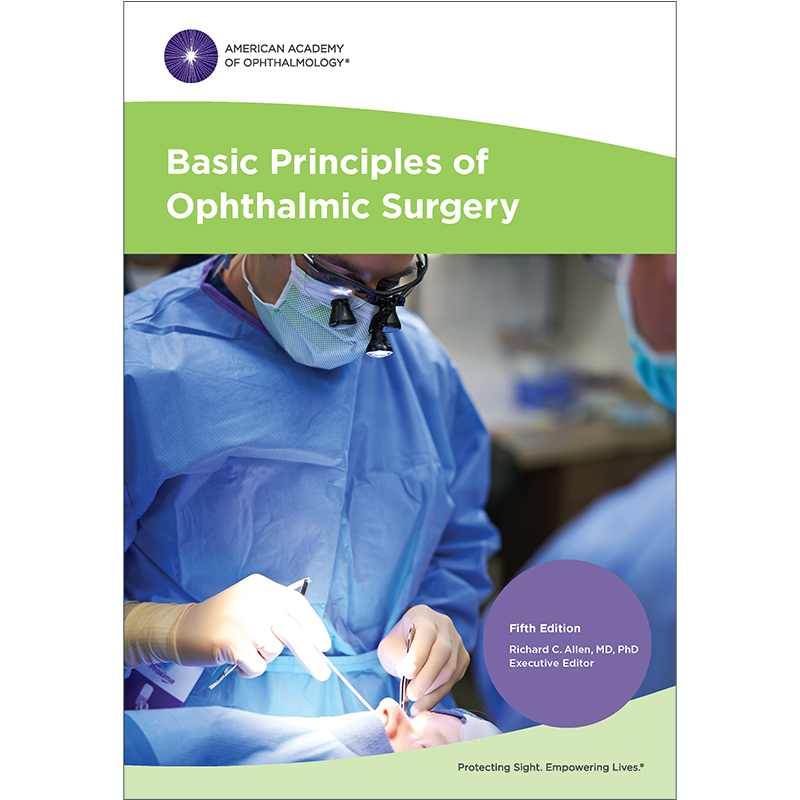No products in the cart.
Ophthalmology Books, General Ophthalmology
Basic Principles of Ophthalmic Surgery Fifth Edition – Original PDF
Basic Principles of Ophthalmic Surgery
$10.00
An estimated 72% of ophthalmologists experience pain associated with the performance of surgery*. Recognizing ergonomic issues and developing positive habits early in practice to reduce risk factors is crucial.
The Academy’s Basic Principles of Ophthalmic Surgery, Fifth Edition, helps residents and trainees build a solid comprehension of ophthalmic surgical knowledge. This new edition includes ergonomic best practices, the importance of informed consent, and a discussion covering sustainable operating room practices.
This text lays the foundation for over 80 surgical procedures covered in its companion volume, Basic Techniques of Ophthalmic Surgery.
This edition includes:
More than 250 photographs and illustrations
A new chapter on sustainable practices in the operating room and updates in ergonomics, surgical instruments, and blades
Each chapter begins with a Highlights section outlining the most important clinical pearls and takeaways
Contents:
Evaluation and Preparation
Patient Selection
Preparation of the Patient
Preparation of the Surgeon
Informed Consent
Simulation in Surgical Training
Surgical Logistics
The Importance of Ergonomics for Ophthalmologists
The Operating Microscope and Surgical Loupes
Surgical Instruments and Blades
Suture Materials and Needles
Lasers
ACGME Requirements for Surgical Training
Intraoperative Considerations
Aseptic Technique and the Sterile Field in the Operating Room
Ophthalmic Anesthesia
Hemostasis
Suturing and Knot Tying
Intraocular Fluids
Patient Safety Issues
Sustainable Operating Room Practices
Postoperative Considerations
Postoperative Management
The Healing Process
Dressings
Handling of Ocular Tissues for Pathology
Complications and Their Consequences
5th ed., 2024
Executive Editor: Richard C. Allen, MD, PhD
All content published by the Academy is protected by copyright law and the Terms of Service. This content may not be reproduced, copied, or put into any artificial intelligence program, including large language and generative AI models, without permission from the Academy.
Print: 307 pages


![[Original PDF] Radiology of the Orbit and Visual Pathways](https://ophthalmologyebooks.store/wp-content/uploads/2022/12/9781455710676.jpg)

![[Original PDF] Ophthalmic Ultrasonography](https://ophthalmologyebooks.store/wp-content/uploads/2022/12/9781455733446.jpg)
![[Original PDF] Ocular Surface Disease: Cornea, Conjunctiva and Tear Film](https://ophthalmologyebooks.store/wp-content/uploads/2022/12/9781455756230.jpg)